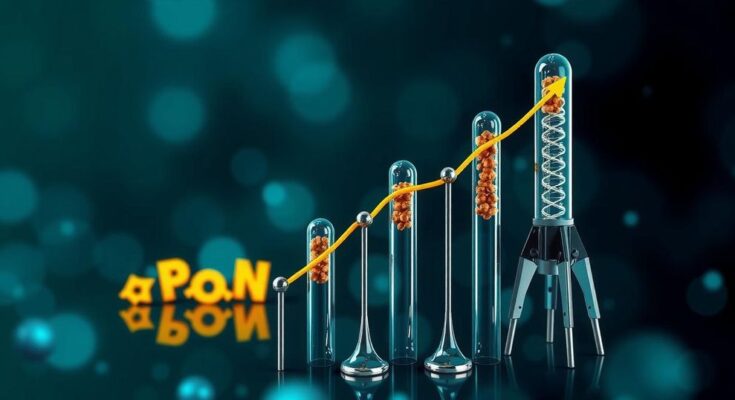Rajeev Nair from Merck highlights a surge in biotechnology and diagnostics startups in India, driven by the need for enhanced healthcare following COVID-19. Merck aims to support this transformation through innovation, investments in skills, and collaborations with local entities. The focus on sustainability and technology is crucial for India’s pharmaceutical sector to thrive and become a global leader.
Rajeev Nair, Global Head of Chemistry within the Life Science business of Merck, has noted a significant increase in startups focusing on the Biotechnology and Diagnostics segments in India. Merck, a prominent global player in science and technology with a base in Darmstadt, Germany, aims to translate global advancements to the Indian market based on its priority towards India’s evolving healthcare landscape. Nair emphasizes that the pandemic served as a wakeup call, highlighting the importance of robust healthcare systems and the need for the life sciences sector to innovate and improve quality of life. Post-COVID-19, research and development in the life sciences have shifted significantly. Companies are now focusing on innovations that enhance life quality while leveraging collaborations to expedite solutions through scientific research. The pandemic exposed vulnerabilities in healthcare infrastructures, underscoring a pressing need for improved pandemic preparedness and increased investments in research and development. The application of machine learning and artificial intelligence in drug discovery, sustainable alternatives, and advancements in cell and gene therapies have emerged as key trends. In the Indian healthcare sector, Merck identifies biotechnology and diagnostics as primary focal points. Nair conveyed that India’s pharmaceutical industry has played a vital role during the crisis, demonstrating a resilient capacity for vaccine production and diagnostics. By supporting startups and academic institutions, Merck aims to fortify the pharma value chain through collaborations that ensure sustainable supply chain practices. Merck India boasts an extensive portfolio of over 300,000 products which directly underpin scientific discovery and manufacturing capabilities in the pharmaceutical realm. Their recent innovations such as the SYNTHIA™ platform, which streamlines synthetic route design, and the upcoming LANEXO™ tool for inventory management, intend to enhance operational efficiency in laboratories. Sustainability has surfaced as an urgent need, prompting Indian pharma and biopharma companies to adopt greener alternatives. Regulatory reforms stressing the reduction of hazardous substances may position India favorably in a competitive global market. Nair also inspires the industry to navigate emerging challenges while refocusing on diverse disease research beyond COVID-19. The life science industry in India presents ample opportunities, driven by the nation’s growing economy and a robust talent pool in science and technology. Merck’s commitment involves nurturing this ecosystem through investments in skill development initiatives aimed at transforming students into future leaders in the life sciences sector. In summation, Rajeev Nair highlights the vital role of innovation and collaboration in advancing India’s healthcare sector while echoing Merck’s commitment to sustaining scientific excellence and fostering partnerships for growth.
The biotechnology and diagnostics sectors in India have experienced rapid growth, particularly following the COVID-19 pandemic which exposed critical weaknesses in the public health systems. This transformation has encouraged investments in research and development, emphasizing innovative solutions that enhance healthcare quality. Merck, an established global leader in life sciences, recognizes India’s potential and aims to contribute by leveraging its expertise and extensive product portfolio to support local startups and academic institutions, ultimately strengthening the pharmaceutical value chain in India.
The insights from Rajeev Nair illustrate that the biotechnology and diagnostics segments in India are poised for substantial growth, backed by Merck’s commitment to innovation and collaboration. The industry must adopt strategies focusing on sustainability and technology to align with global health trends. By fostering partnerships within this ecosystem, India can enhance its self-reliance in pharmaceutical production and evolve as a formidable player in the global life sciences landscape.
Original Source: www.financialexpress.com




